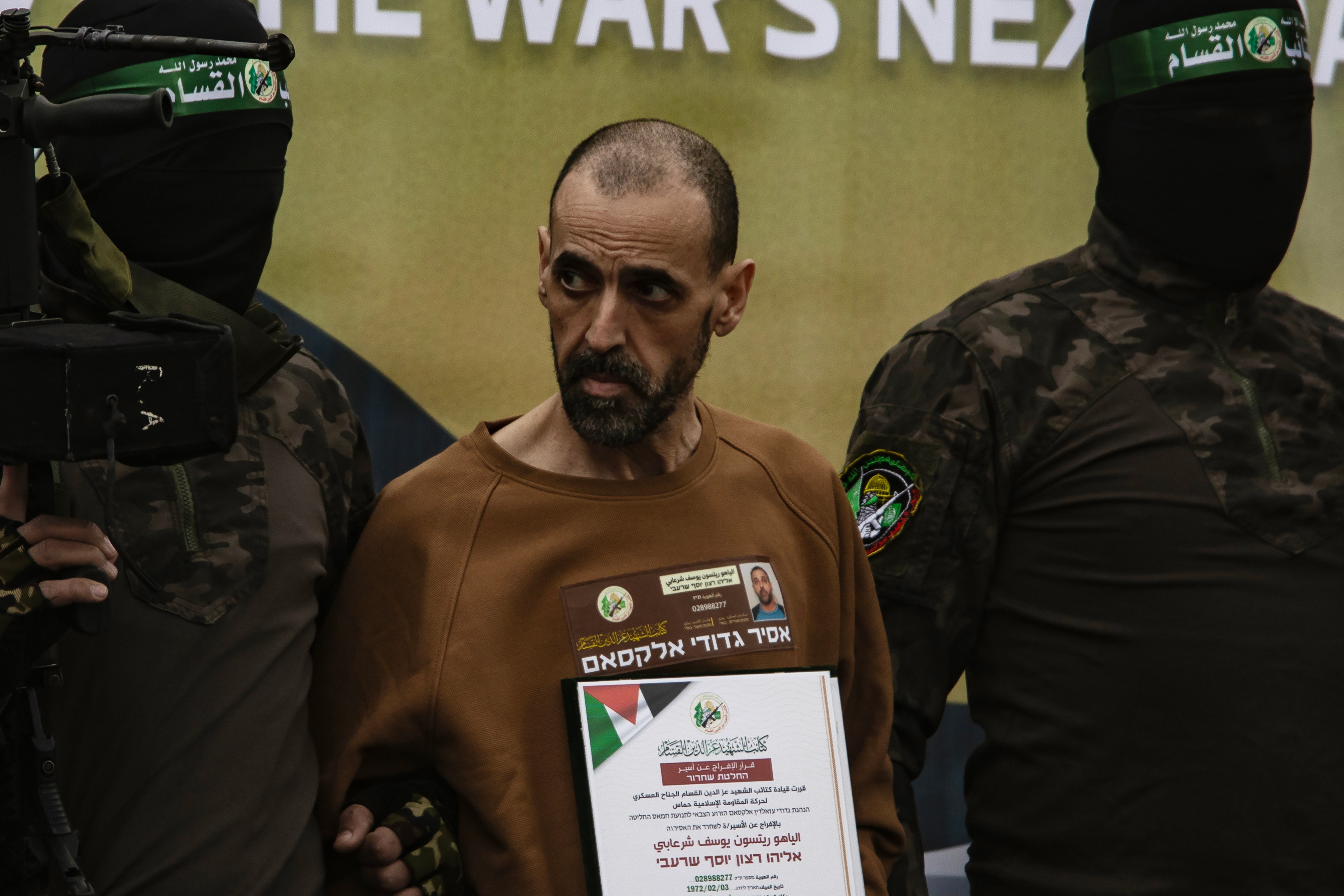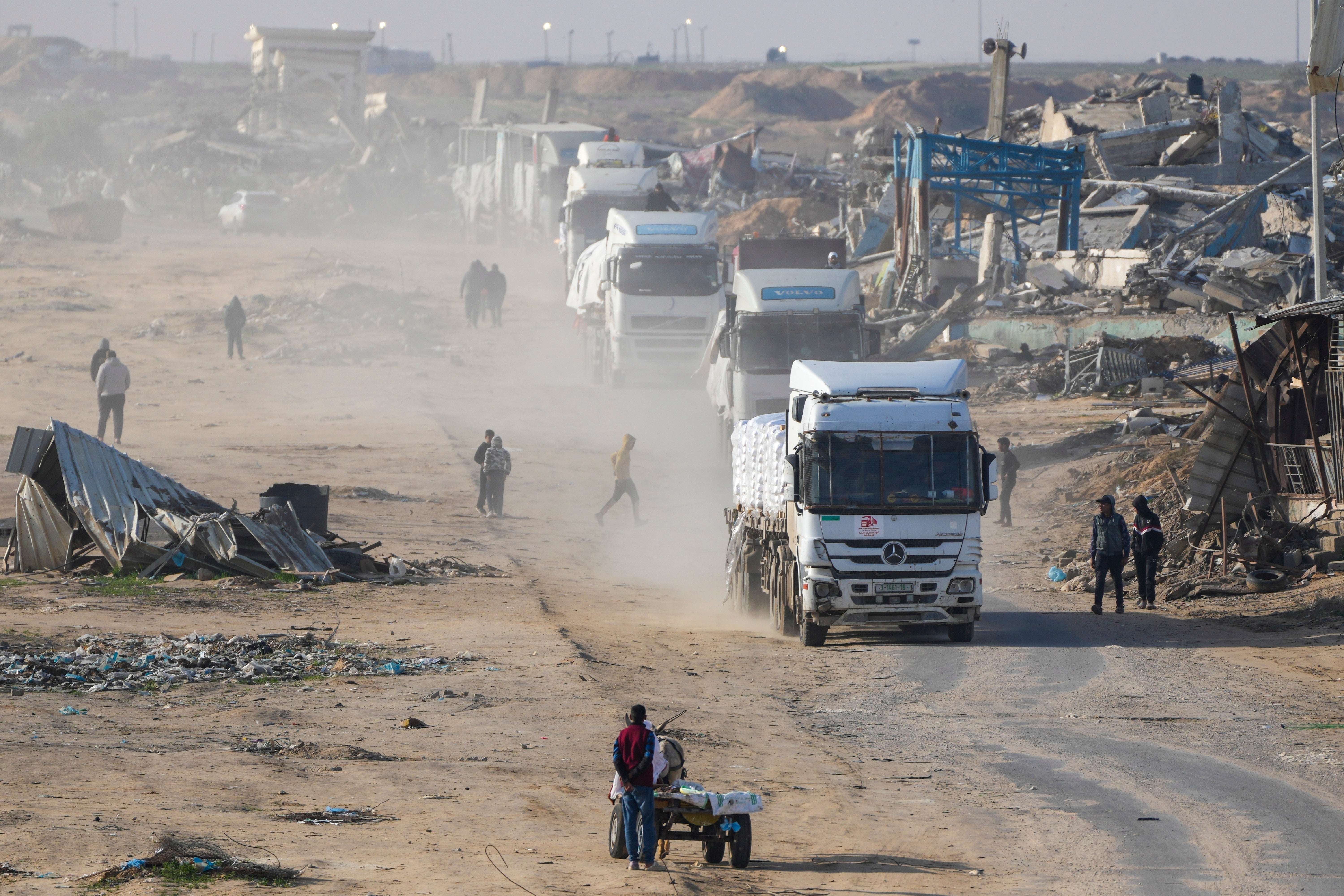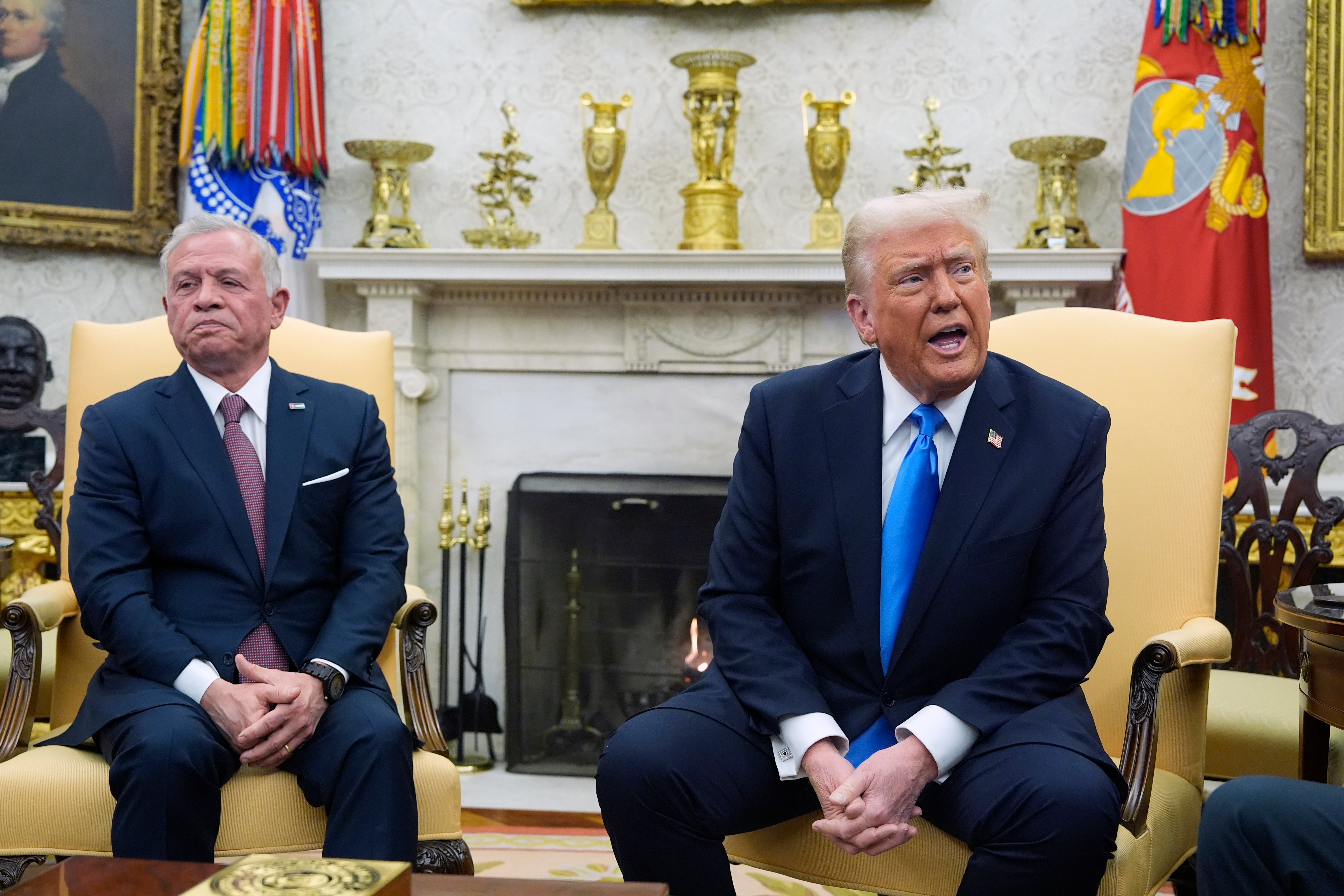Hamas says it will release Israeli hostages as planned on Saturday – apparently rescuing the fragile ceasefire in Gaza from collapse.
Mediators had scrambled to salvage the truce ahead of the deadline this weekend, when the next round of Israeli hostages and Palestinian detainees were due to be released.
The Palestinian militant group earlier said it would not hand over the next three captives, accusing Israel of violating the terms of the truce, including shelling the territory and not allowing in shelters and humanitarian aid.
Click here for live updates on the ceasefire
Israel’s leaders hit back with counterclaims and, together with close ally Donald Trump, threatened to pull out of the agreement, to “open the gates of hell”, and to start a “new Gaza war … different in intensity”. Israel deployed additional troops to its border area with Gaza and cancelled leave for combat soldiers.
On Thursday Hamas said Egyptian and Qatari mediators affirmed that they would work to "remove all hurdles", and that the group would implement the ceasefire deal. The statement indicated that three more Israeli hostages would be freed on Saturday, adding that “the talks were characterised by a positive spirit”.
Earlier, a Hamas official told The Independent that they were working with Egyptian and Qatari mediators to secure guarantees from Israel that shelter and aid materials outlined in the agreement would enter Gaza.
Egypt's state-run Cairo TV, which is close to the country's security services, later played footage showing lorries carrying temporary housing and bulldozers on the Egyptian side of the Rafah crossing with Gaza.
There was no immediate comment from Israel.
Families of the hostages still held inside Gaza said they would be “terrified” for their loved ones if the deal fell through, especially after the three hostages released last week emerged from captivity emaciated and ill.
“The waiting is unbearable. Each Saturday brings renewed anguish as we hope to hear news of my grandfather's release,” said Daniel Lifshitz, whose grandfather Oded, 84, is among those due to be released in the next few weeks. Oded, a retired journalist and peace activist with family in London, was seized from Nir Oz on 7 October alongside his wife Yocheved, who was later released in a previous deal.

“My grandmother, still struggling to recover from her own time in captivity, cannot truly heal until she knows her husband's fate. We continue our desperate wait for any news about my grandfather. The silence is deafening.”
Dalia Cusnir, whose two brothers-in-law, Eitan and Iair Horn, both Argentinian citizens, were also seized from Nir Oz said the family is “terrified” about the conditions the hostages are being held in.
“We all knew that they are being starved and tortured, but seeing Ohad [Ben-Ami], Or [Levi] and Eli [Sharabi] was shocking. It made us understand that every second is a second of hell for them.”
Iair, 46, who suffers from diabetes, is on the list of those to be released in the first six-week phase of the deal, but his brother Eitan, 38, who also has a pre-existing health condition, is among the names to be released only in the second phase. Dalia and her family are concerned that even the first phase will not last.
“The danger of going back to war for the hostages might be a deadly decision. It's a matter of life and death,” she said, adding that her husband had been “destroyed” by the horror of his siblings being taken on 7 October.
“We have 76 people who are screaming to us from the bottom of the worst place on earth, hell, literally hell.”
“We believe that the ceasefire and ending the war is good for both sides. I also want the Gaza kids to be able to dream for a better future, the same way my kids do.”

Hamas seized 251 people in southern Israel and killed over 1,000 more during their deadly attack on 7 October 2023, according to Israeli tallies. At least 76 remain in Gaza, of which just over half are believed to be alive, according to the families of the hostages.
Under the first phase of the ceasefire deal, Hamas and Israel agreed that 33 hostages would be released in exchange for around 2,000 Palestinians in Israeli prisons. So far, Israel and Hamas have completed five exchanges under the deal.
The ceasefire has also brought much-needed respite to Palestinian civilians in Gaza: Israel’s ferocious bombardment of Gaza has killed over 48,000 people and displaced more than 90 per cent of the territory’s 2.1 million population, according to the Palestinian health ministry.
The besieged strip has been pushed to the brink of famine, and a recent United Nations damage assessment showed that just clearing away the more than 50 million tonnes of rubble left by Israel's bombardment could take 21 years and cost up to $1.2 billion.
In Gaza, desperate families, who had been displaced multiple times and only just returned to the destroyed north of the strip, told The Independent they were worried that the fighting would resume and they would be forced to flee again.
“People are already trying to move to places less dangerous, away from the [Israeli] soldiers,” said Jihad, 20, from Jabalia refugee camp, who said she had lost many friends to the fighting.
“My house is partially damaged, and the fear now is that the war will return, and we will lose what is left. I am afraid that our house will be bombed, that we will be displaced from one place to another.”

Mr Trump, who met close US ally King Abdullah II of Jordan this week in the Oval Office, threatened to cancel the agreement if Hamas does not release all their captives by midday Saturday. In fiery statements that poured fuel on the fire, he warned “all hell is going to break out” in Gaza if there is no handover.
He has also infuriated the Arab world by repeating that he is “committed to buying and owning” Gaza and suggesting that neighbouring countries such as Jordan and Egypt could absorb Gaza’s population – an idea both governments have rejected.
King Abdullah appeared uncomfortable during a meeting with Mr Trump at the White House on Tuesday, at which Mr Trump discussed this plan for Gaza.
Egyptian security sources told Reuters that Egypt's president Abdel Fattah al-Sisi will not travel to Washington for talks at the White House as long as the agenda includes Mr Trump's desire to displace Palestinians.







